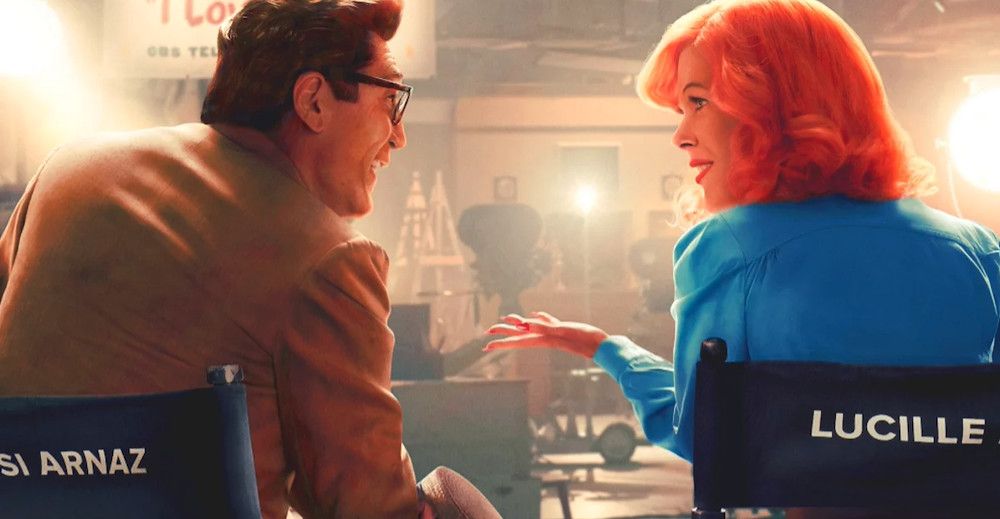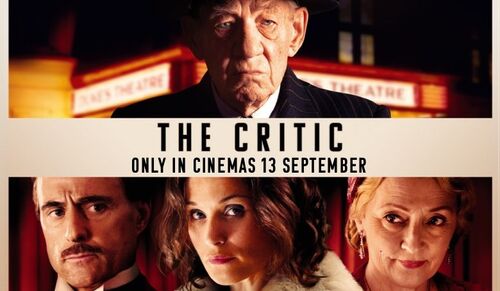
'Being the Ricardos' Review
 “Being the Ricardos” is writer/director Aaron Sorkin’s dramatization of one week of production of the iconic TV series, “I Love Lucy”. The episode depicted is “Ethel and Fred Fight”, named on scripts as Season 2 Episode 4. (In reality, “Fred and Ethel Fight” was the 22nd episode of Season 1, filmed in early 1952. While it’s possible to ignore this fact, it does cause logistical problems with many events and comments made by key characters throughout the film.)
“Being the Ricardos” is writer/director Aaron Sorkin’s dramatization of one week of production of the iconic TV series, “I Love Lucy”. The episode depicted is “Ethel and Fred Fight”, named on scripts as Season 2 Episode 4. (In reality, “Fred and Ethel Fight” was the 22nd episode of Season 1, filmed in early 1952. While it’s possible to ignore this fact, it does cause logistical problems with many events and comments made by key characters throughout the film.)
Over this Monday through Friday stretch, Lucille Ball (Nicole Kidman) and husband Desi Arnaz (Javier Bardem) engage in personal and professional battles amongst themselves and with outside forces. As the week (and story) begins, Ball is accused by gossip columnist Walter Winchell of being a communist. (In reality, this controversy didn’t take place until September 1953, surrounding the taping of the Season 3’s Episode 68: “The Girls Go Into Business”.)
On the personal side, Lucy suspects Desi is cheating on her. He denies it, though he is spending most nights out of the house.
And there’s the revelation that Ball is 12 weeks pregnant with their second child. (In reality… Desi Arnaz, Jr. was born in January 1953).
Obviously, Sorkin’s screenplay plays fast and loose with the actual timeline. It is an “original” screenplay, in that Sorkin did not directly adapt it from a text. However, “Being the Ricardos” does depict the actual cast and crew working on the Desilu Productions soundstage at CBS making “I Love Lucy”. Unfortunately, that’s where the authenticity ends.
The biggest problem with “Being the Ricardos” is the lack of genuine emotion, dramatic tension and energy. Sorkin tries to force feed these elements, but they come-off as artificial. His trademark rapid-fire dialogue is toned-down just a bit, electing to replace it with a much more annoying reliance on explanatory conversations and “snappy” patter. Every character — and I mean EVERY character — led by J.K. Simmons’ William Frawley (who played Fred Mertz on the show) believes they are the funniest person in the room. You might be able to tolerate this if it was only the comedy writers, but here everyone speaks like comedy writers — constantly trying to top each other with “clever” comebacks, none of which are even close to being clever. It’s beyond annoying.
Much has been written about the casting of Kidman and Bardem as the iconic entertainment couple. I don’t have a major problem with Kidman’s appearance and she does a credible job sounding like Lucy during the sitcom scenes. But Kidman fails to bring Lucille Ball to life. And the same goes for Bardem. Their moments together — either fighting each other, the studio suits or the press — are much like the movie as a whole — humdrum. There’s just no sizzle.
If you’re a fan of Lucy and Desi, “I Love Lucy” or old-time TV in general there’s very little in “Ricardos” you won’t already know. Sorkin falls into the common trap of depicting ’50s studio audience members as buffoons. And he doesn’t treat his supporting characters much better. The best moments in “Being the Ricardos” spotlight Ball’s visionary, comedic genius. Unfortunately, they are few and far between.
Aaron, you’ve got some ‘splaining to do!


